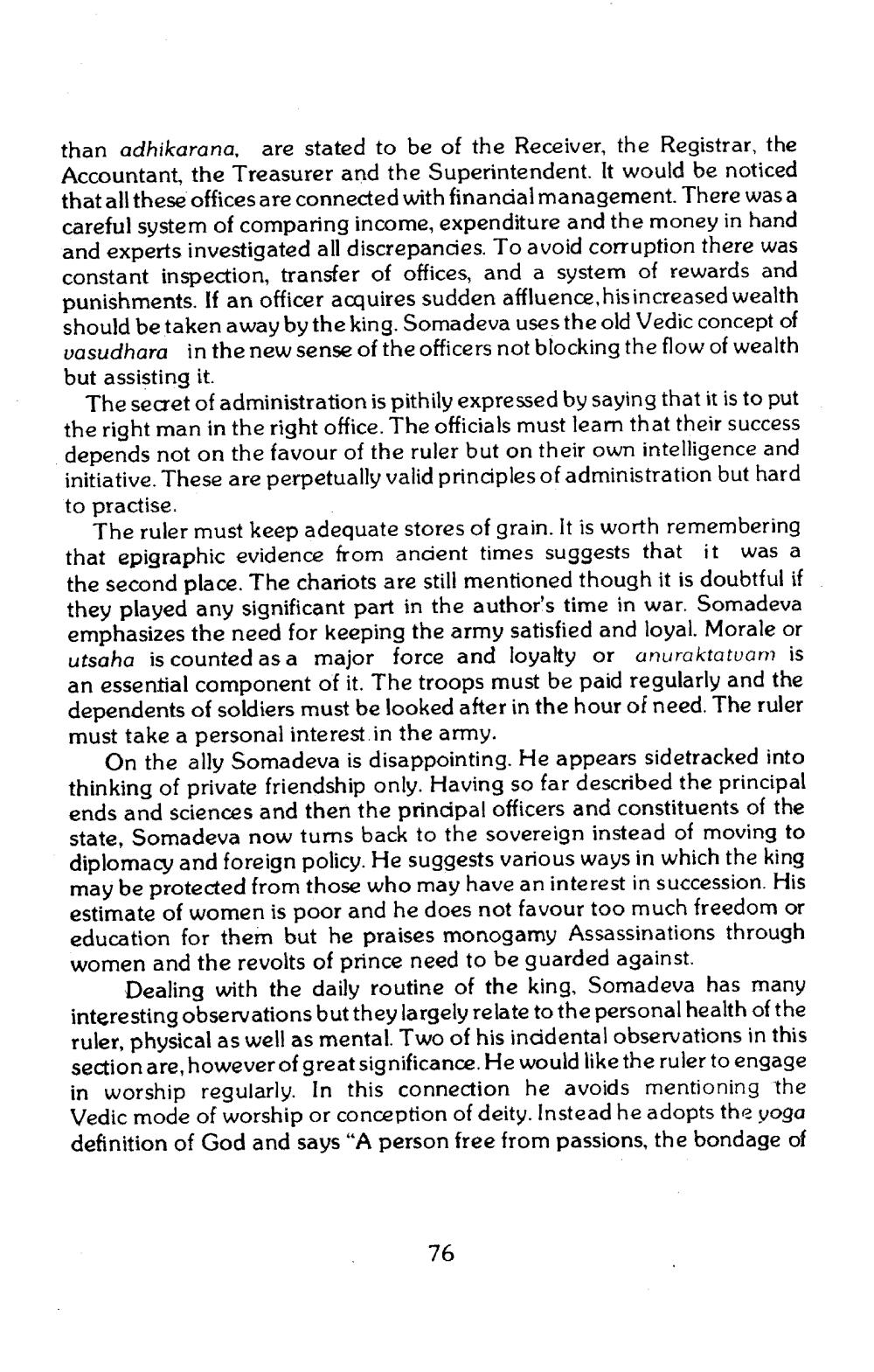________________
than adhikarana,
are stated to be of the Receiver, the Registrar, the Accountant, the Treasurer and the Superintendent. It would be noticed that all these offices are connected with financial management. There was a careful system of comparing income, expenditure and the money in hand and experts investigated all discrepancies. To avoid corruption there was constant inspection, transfer of offices, and a system of rewards and punishments. If an officer acquires sudden affluence, his increased wealth should be taken away by the king. Somadeva uses the old Vedic concept of vasudhara in the new sense of the officers not blocking the flow of wealth but assisting it.
The secret of administration is pithily expressed by saying that it is to put the right man in the right office. The officials must learn that their success depends not on the favour of the ruler but on their own intelligence and initiative. These are perpetually valid principles of administration but hard to practise.
was a
The ruler must keep adequate stores of grain. It is worth remembering that epigraphic evidence from ancient times suggests that it the second place. The chariots are still mentioned though it is doubtful if they played any significant part in the author's time in war. Somadeva emphasizes the need for keeping the army satisfied and loyal. Morale or utsaha is counted as a major force and loyalty or anuraktatuam is an essential component of it. The troops must be paid regularly and the dependents of soldiers must be looked after in the hour of need. The ruler must take a personal interest in the army.
On the ally Somadeva is disappointing. He appears sidetracked into thinking of private friendship only. Having so far described the principal ends and sciences and then the principal officers and constituents of the state, Somadeva now turns back to the sovereign instead of moving to diplomacy and foreign policy. He suggests various ways in which the king may be protected from those who may have an interest in succession. His estimate of women is poor and he does not favour too much freedom or education for them but he praises monogamy Assassinations through women and the revolts of prince need to be guarded against.
Dealing with the daily routine of the king, Somadeva has many interesting observations but they largely relate to the personal health of the ruler, physical as well as mental. Two of his incidental observations in this section are, however of great significance. He would like the ruler to engage in worship regularly. In this connection he avoids mentioning the Vedic mode of worship or conception of deity. Instead he adopts the yoga definition of God and says "A person free from passions, the bondage of
76




